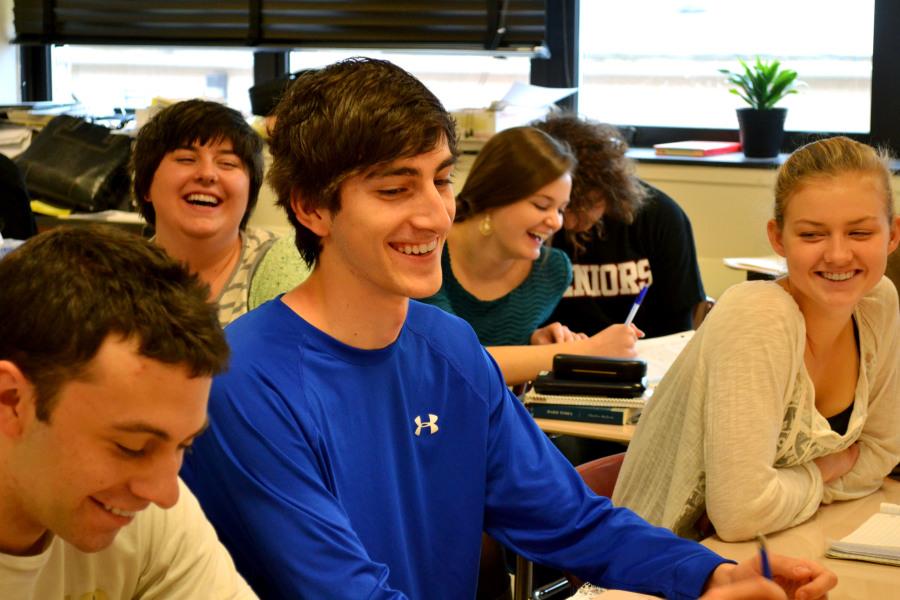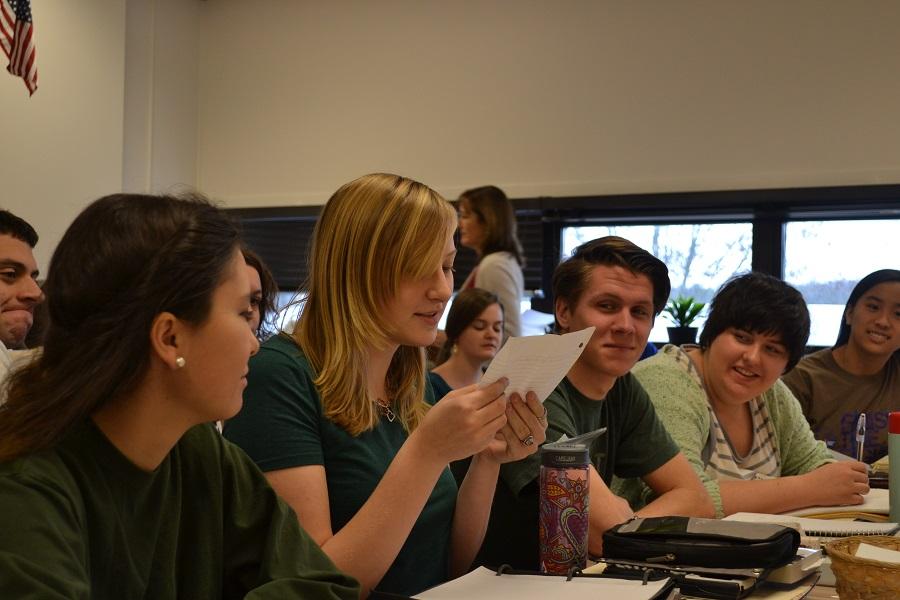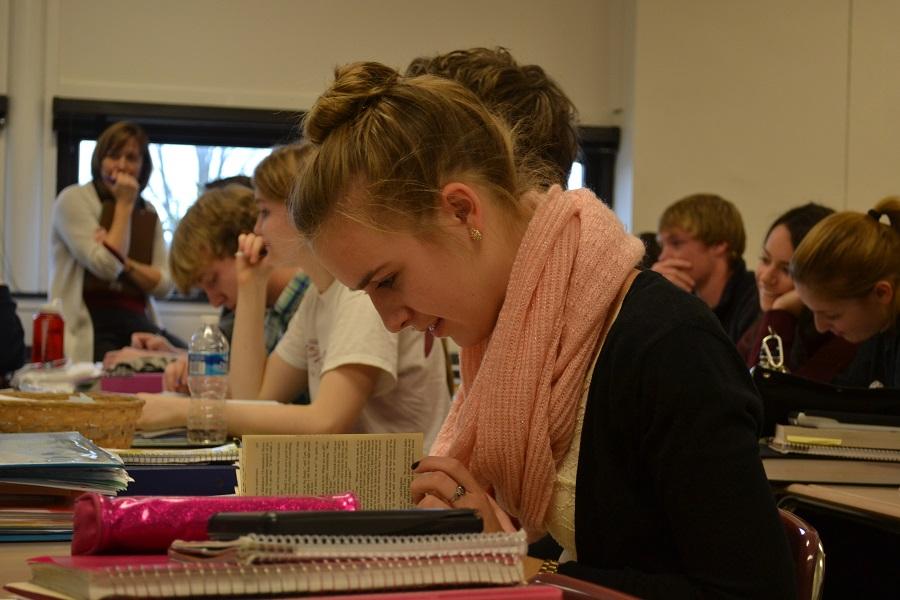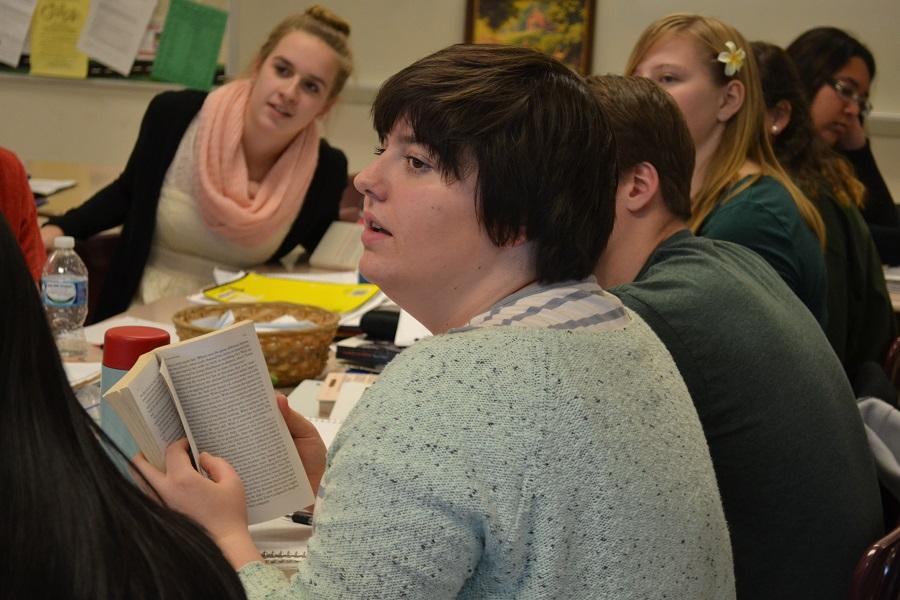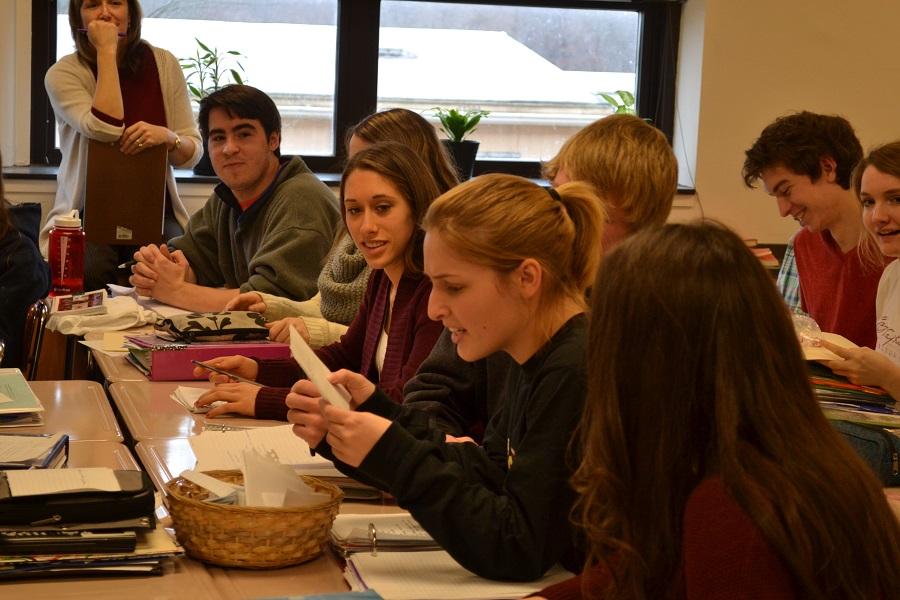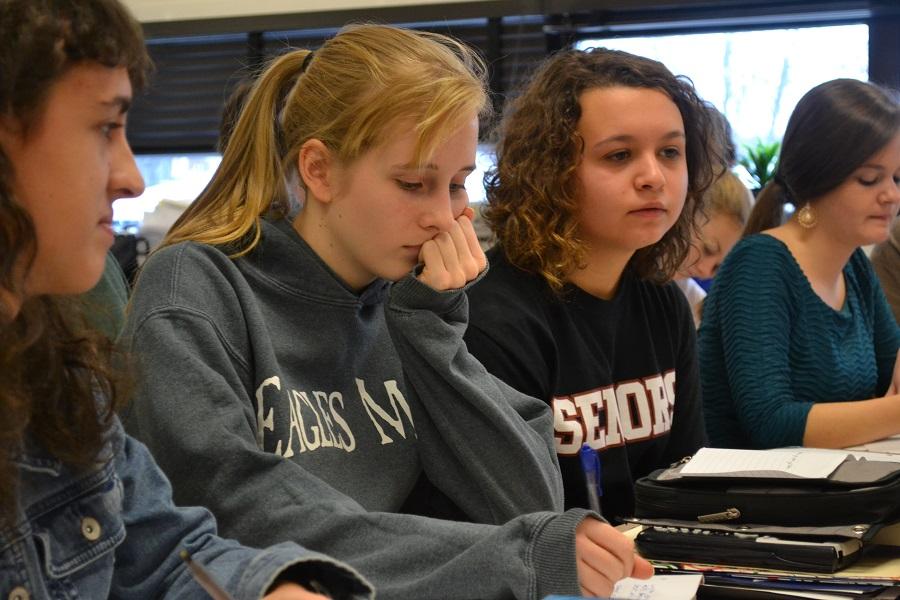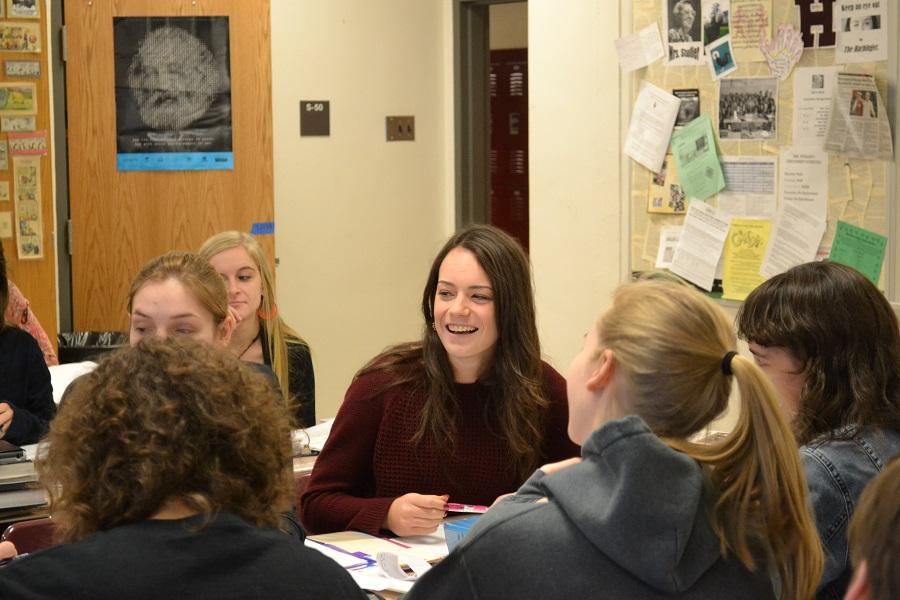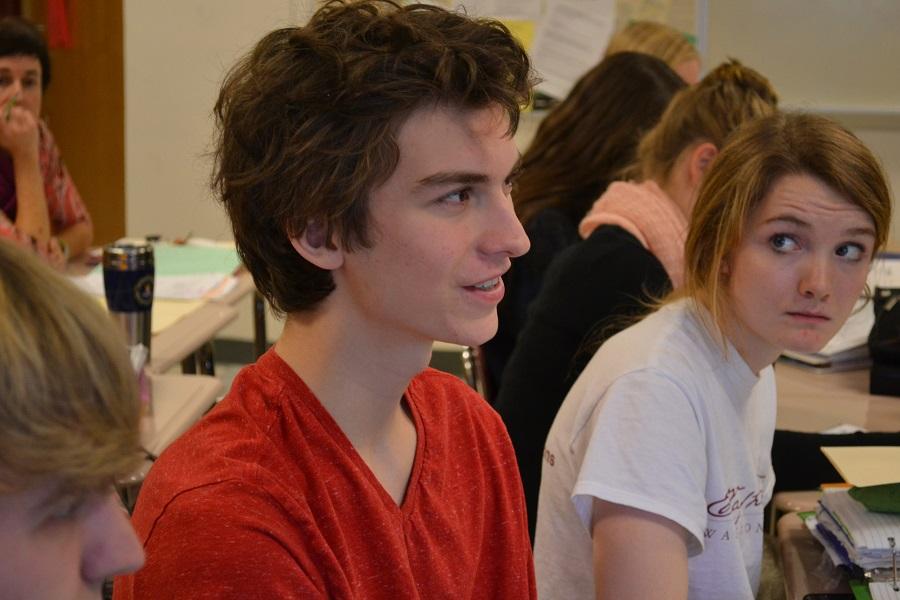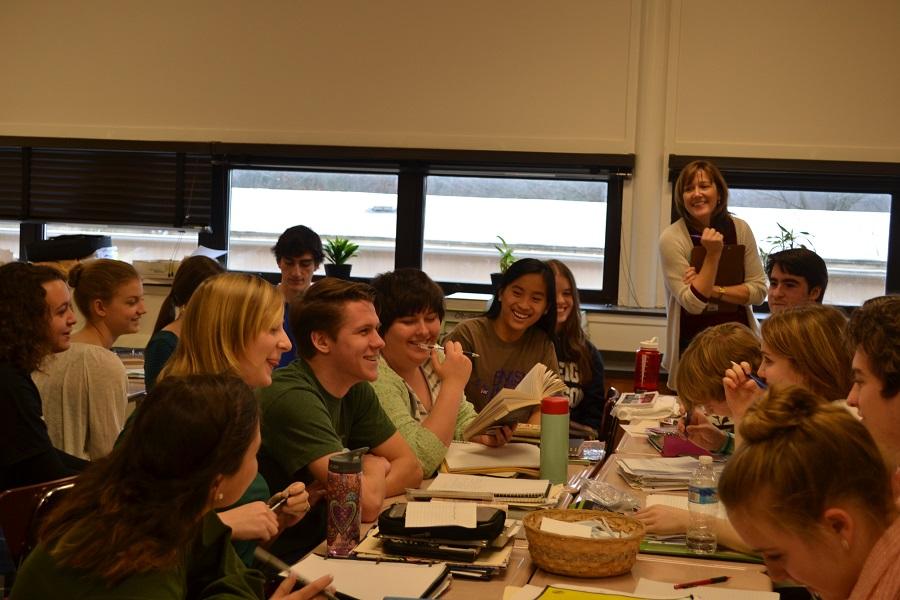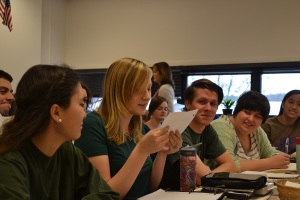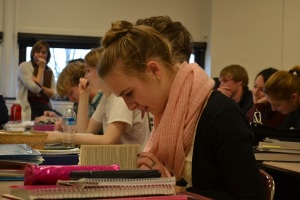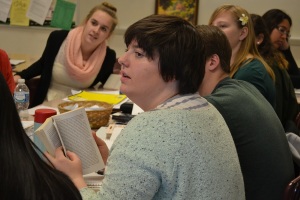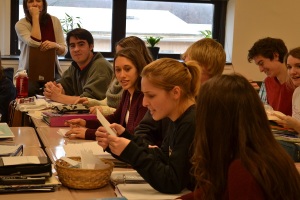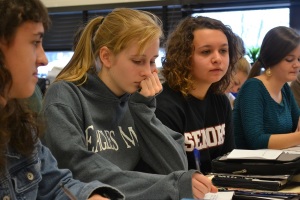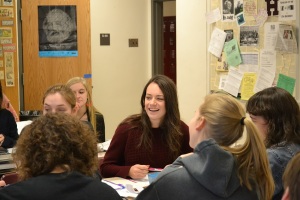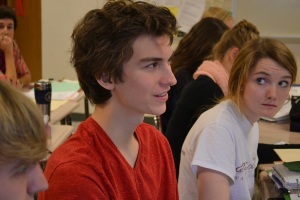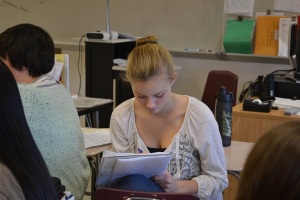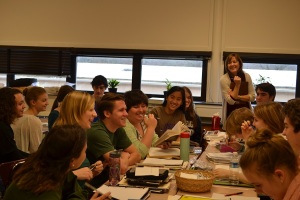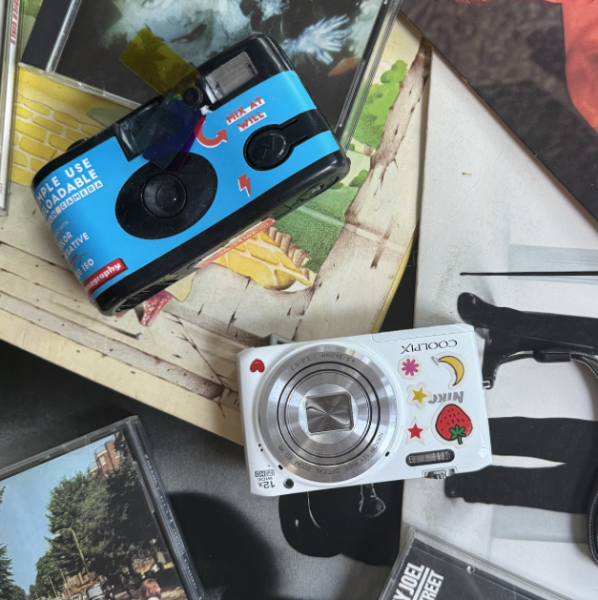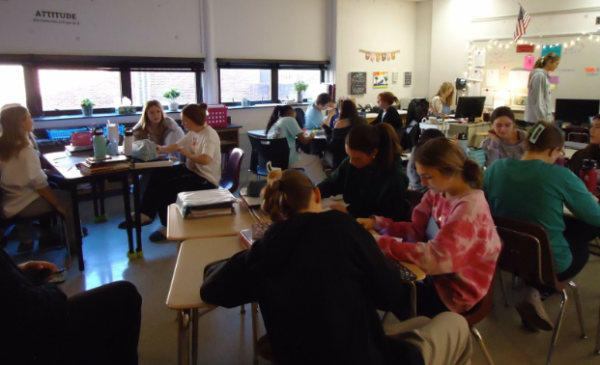Student-led discussions increase
Steven Isett (’15) jokes with students during a Fishbowl Discussion in AP Literature and Composition class. School-wide, teachers have been employing various discussion strategies in their courses.
Students took part in a Fishbowl activity on December 8 in Mary Beth Stuller’s Period 2B AP Literature and Composition class in order to discuss the novel “Hard Times” by Charles Dickens. Topics discussed included specific chapters of the book, character development, and summaries, lots of summaries. Other teachers have also utilized this type of discussion.
In a fishbowl discussion random questions are pulled out of a bowl and students within the center of the room discuss the topic. All of the other students are located on the outside and listen to what is said and then can add their own opinions or contradict what was said earlier.
“A fishbowl discussion is an opportunity for students to direct their understanding and learning of a particular topic,” said STAT teacher Niamh McQuillian. “Students end up having their own understanding and learning and knowledge of the book.”
Some students active in the discussion believe that it was beneficial, such as Matt Butz (’15). “There are some things that the teacher will say that we don’t really understand as students, but we know how we learn better,” said Matt. “We want it to be explained to us, so students talking to students is definitely sometimes better than just teachers talking to students.”
Not all students believe that the activity was beneficial, however. “The novel that we’re analyzing, ‘Hard Times,’ is a philosophical novel, so I think that we need to approach it from a philosophical standpoint. We have to analyze materialism and utilitarianism, and we didn’t really do that. It was more like analyzing characters,” said Jacob Hamidi (’15).
These kind of activities “encourage students to get engaged in a discussion,” said AP Psychology teacher Robert Greenwood. Greenwood has had Socratic seminars within his classes before. “It’s not a debate, it’s a way to discuss your knowledge,” he said.


